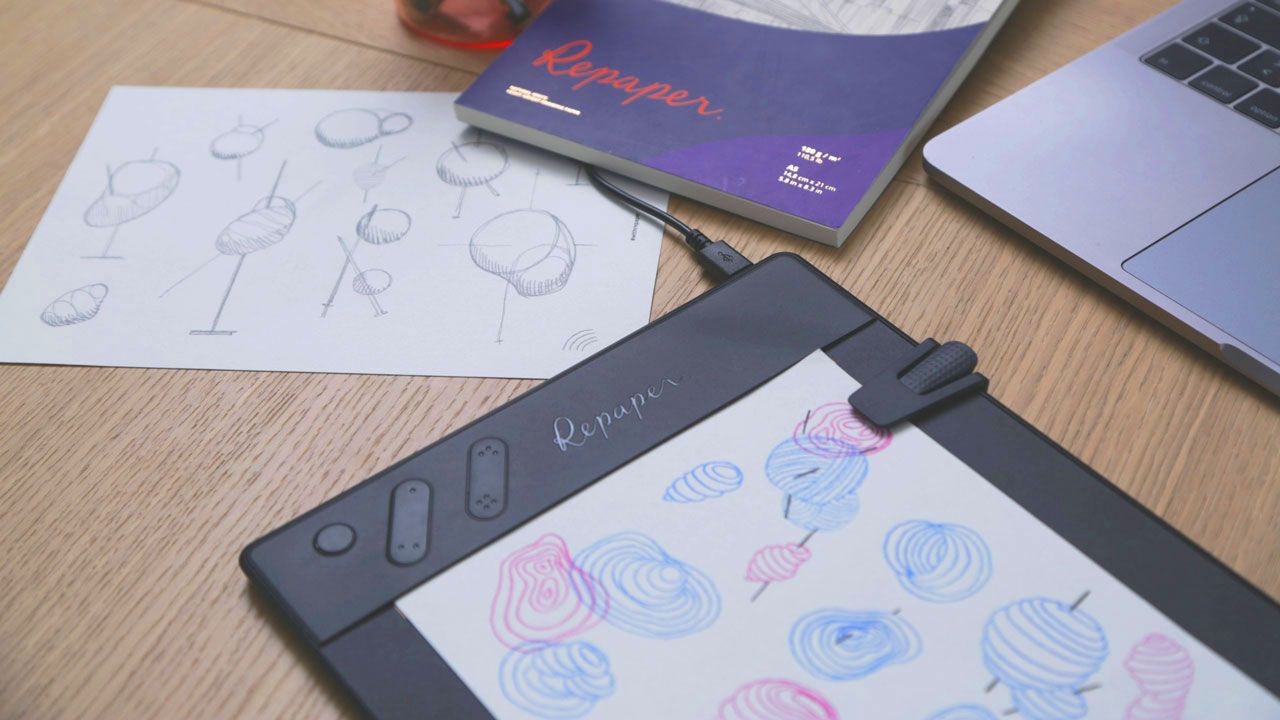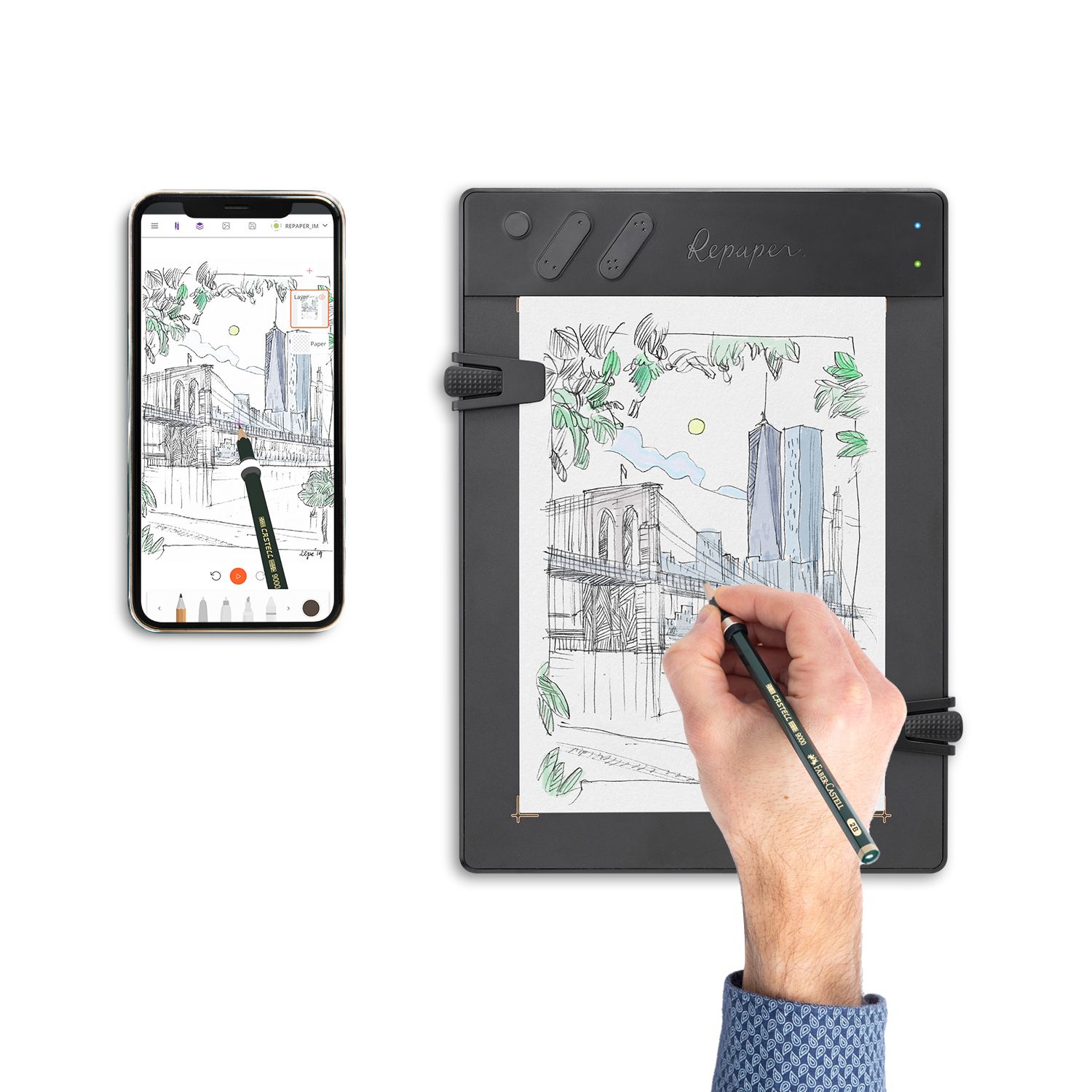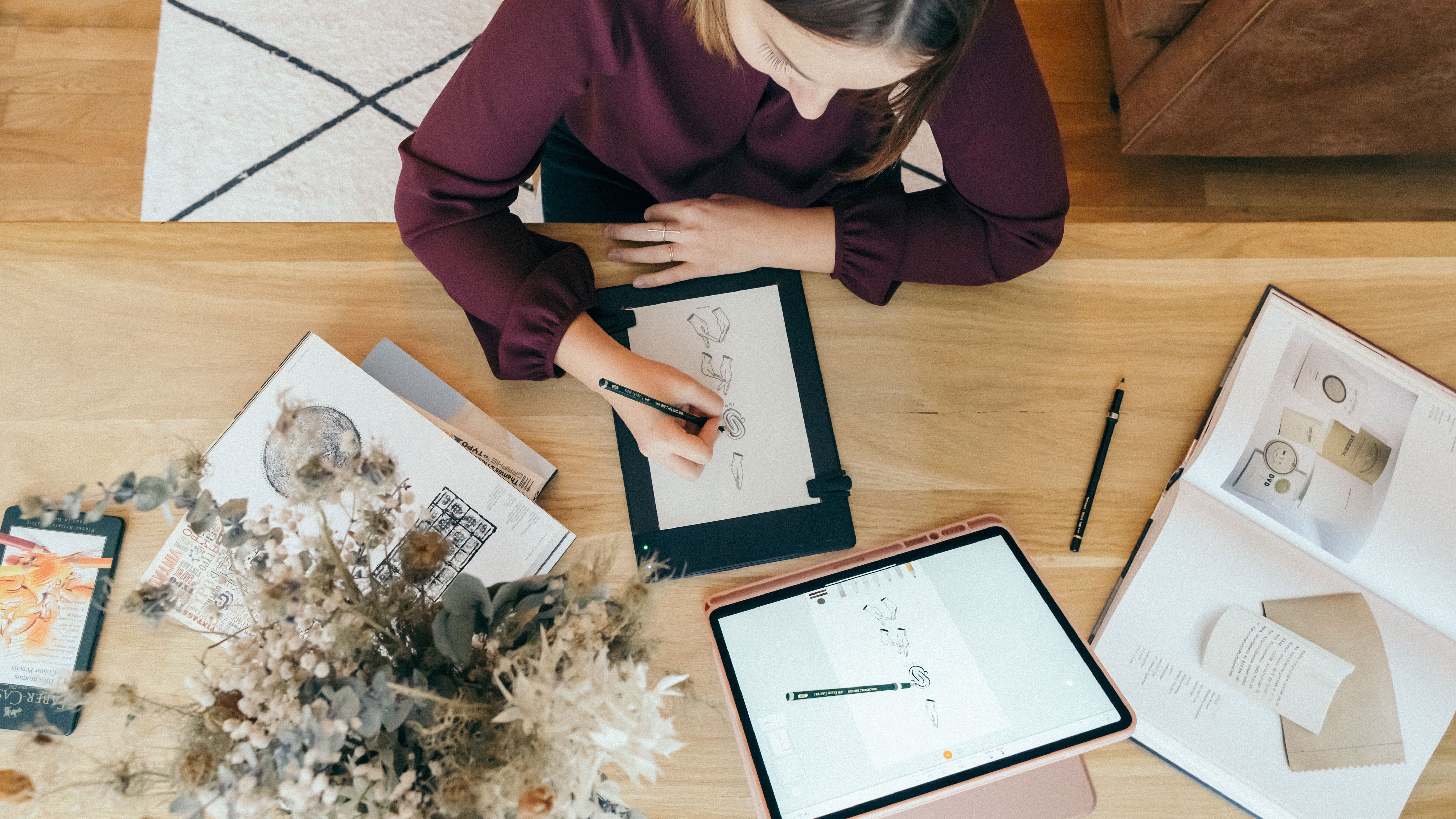
Embark on Your Design Journey: Learn How to Become a Designer
Designing tomorrow's products, making drawing and creativity your profession, the designer profession is a dream for many creative people and hobbyist designers. However, this field encompasses many disciplines, and you need to be able to adapt to the one you will choose. Adapted tools will help you, and for the self-educated as well as for those who have followed a specific training course, becoming a designer requires creative qualities that are essential to succeed in this field.
What is the designer's job?
A broad discipline.
The design business is made of a multitude of professions, each one having its own particularities. If it remains above all a profession of art, design fields are varied, and there are a large number of disciplines around graphic creation. Among these, we find the webdesigner who will specialize in digital design, a graphic designer of websites, or in video games among others. For the domain of communication design, we can use the technique of motion design. The graphic designer will create visuals and animated illustrations in order to communicate on the products to be promoted. As for the interior designer, he/she will develop a new way of conceptualizing the architecture of a site. If all these activities are indeed part of the same universe, when we mention the career of designer, it means more specifically product design or industrial creation. The product designer will be the cornerstone of product design. Whether you are a designer in a creative agency or a freelancer, this role will be involved in the design of consumer goods and their packaging. Thanks to graphic creations, it will allow the elaboration of prototypes for furniture and objects, which can perhaps be found in all homes.


Several media and tools exist for the designer's business.
If there are many businesses in the field of design, they generally use relatively similar tools, and whose ergonomy and user interfaces will assist graphic designers in the feasibility of their projects. The graphic design software is the first element, essential in the design of a quality graphic image, allowing to visualize the imagined object in its entirety. Among the best known are Photoshop and Illustrator. Versatile and user-friendly, they can be completely adapted to the graphic design of furniture or objects of any kind. Other DTP software such as Indesign can also be useful for the representation of products, in order to enhance them, in the context of the creation of communication materials. In order to improve the user experience for the designer, drawing tablets are essential creative solutions to make the most of the above mentioned software.
Thanks to them, the technical constraints are overcome, allowing you to draw your sketches with a pen in a very natural way. This is especially true with scanner graphic tablets, such as the ISKN Repaper, which allow you to draw directly on a sheet of paper, affixed to the drawing area, with your favorite pencil, just as you would with a traditional sketchbook. Thanks to the magnetic ring installed on the pen, and with the integrated pressure sensors, it allows you to perfectly reproduce the movements of your pencil, in order to watch your illustration being drawn on the computer screen. No need for advanced graphic design courses in design schools, this type of drawing tablet allows anyone with ideas for innovative objects, and a decent level of drawing, to be easily develop them on the computer, without having to struggle with the hand-eye coordination required by more traditional graphic tablets without screens. The designer's tools are within everyone's reach, and allow self-taught designers, or enthusiasts, to develop their art in a more professional way.

How to be trained for the designer's job?
Different study programs according to different specializations.
Becoming a designer can be a dream for many, and even if, as we will see later, it is possible to achieve one's goals without a design diploma or a specific higher diploma. Studying graphic design in a design school or even in a remote training program facilitates the opening of the employment world, in which opportunities can be scarce in the artistic professions. Many post-baccalaureate courses exist, and if one can turn to a design course, such as product design, visual communication, or a specialized professional license, a master's degree in design at a national school of art and design remains the best option to consider, in the medium term, interesting and highly responsible positions such as that of creative director. For admission to a design program, it may be interesting for some people to take a leveling course in applied arts (MANAA). This will allow you to review the basics of graphic design, and then be able to enter a course in graphic design, or another suitable graphic design course.

Becoming a self-taught designer is possible!
Becoming a graphic designer does not necessarily means attending an art school or a design school to succeed. Some renowned designers, who demonstrate an outstanding creativity, have learned everything by themselves, and can now work on the creation and realization of their concepts as freelancers. However, it is important to keep in mind that the design industry does not offer the best opportunities, and it will be more difficult to integrate a product design agency or an advertising agency with a simple high school diploma. Freelancers have to work twice as hard as others to be able to work with new clients on a regular basis, and to stay up to date with the latest trends in the field and keep an open mind. Moreover, they have to use the same tools as designers coming out of prestigious schools, in order to meet their clients' requirements. Even if tools such as the graphic tablet scanner allow to work with complex graphic software, hence eliminating many technical constraints, such as hand-eye coordination, and the sometimes unpleasant use of a stylus, it is important for the designer to stay up to date with new software and new opportunities that digital solutions offer.
Some tips on how to become a designer.
Designer skills.
To become a designer, or even better, a project manager or artistic director of a design agency, merely having graphic talent and technical skills in product design for example, is not enough. If these qualifications remain essential to acquire one's own visual style, one must also know how to work in a team, be curious, and have a strong creative sense, in order to understand the clients' desires.

Adapt to the customer.
Don't forget that you are working for a client, and the client is king. You must therefore regularly make concessions so that the prototypes and models you submit meet their expectations. You may feel that their requests are ruining your basic prototype, but the object you create must meet their needs and specifications, and corresponds with their brand identity. So adapt accordingly, keep in mind that you are doing a job, and you can keep the creative aspect for your personal designs.
Take inspiration from the outside world.
In order to keep a clear mind, it is important for the graphic designer to go out and think about his/her future graphic elements through nature and what can surround him/her. A simple element, from a plant to an animal, can be a real source of inspiration and can integrate the design of objects, making them innovative and creative. The greatest creations are often inspired by the outside world and nature. It is therefore important not to neglect this aspect to be in tune with the times, especially at a time where ecology and nature are at the center of our concerns.

Design must remain a passion.
If you want to start a designer career, you may find yourself working on projects that don't completely match your style, as clients may have expectations requiring you to make many concessions on your designs. That's why it's advisable, outside of work, to realize personal projects that are close to your heart. This will allow you to avoid being disillusioned. Keep in mind that the more you evolve in your career, the more interesting projects you will have according to your seniority and experience.
Keep an open mind!
As we have seen, becoming a designer requires constant learning. If specific studies and tools such as software and drawing tablets allow to work in a professional way, being a designer, whatever the chosen speciality, is first of all a job of passion, requiring to always stay up to date with the latest novelties, and to nurture a constant inspiration.


Discover more
Develop creative ideas in meetings.
Organizing creative business meetings is a challenge, whether for managers who want to find new solutions to their problems or for creative professionals who need to deliver a visual message.
Preparing for Fine Arts Studies: Requirements and Guide.
To go to the Beaux-Arts" is a phrase that makes many aspiring artists dream.
How to draw in 3D or in perspective?
Discover how to draw in three dimensions, and explore the different techniques used for 3D perspectives.
Newsletter
Keep up to date with iskn news and events
Free standard delivery
for purchase over €80
30-day returns
on all products
Secure payment
with Stripe & PayPal
Pay in 3
with Alma
Customer service
chat with us


